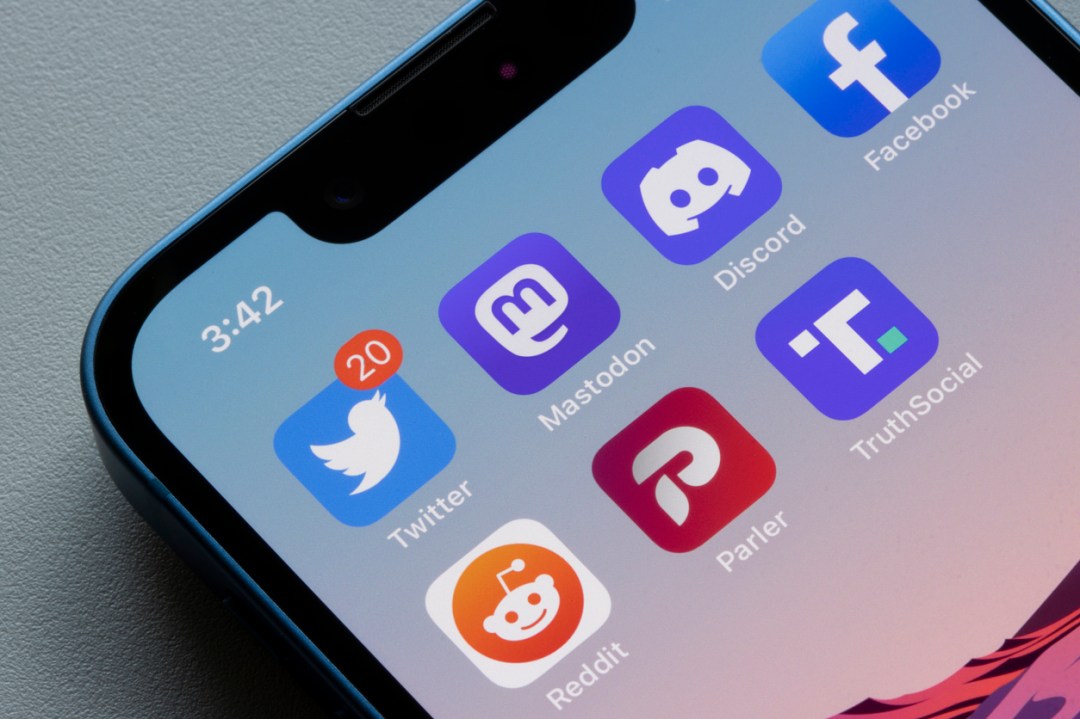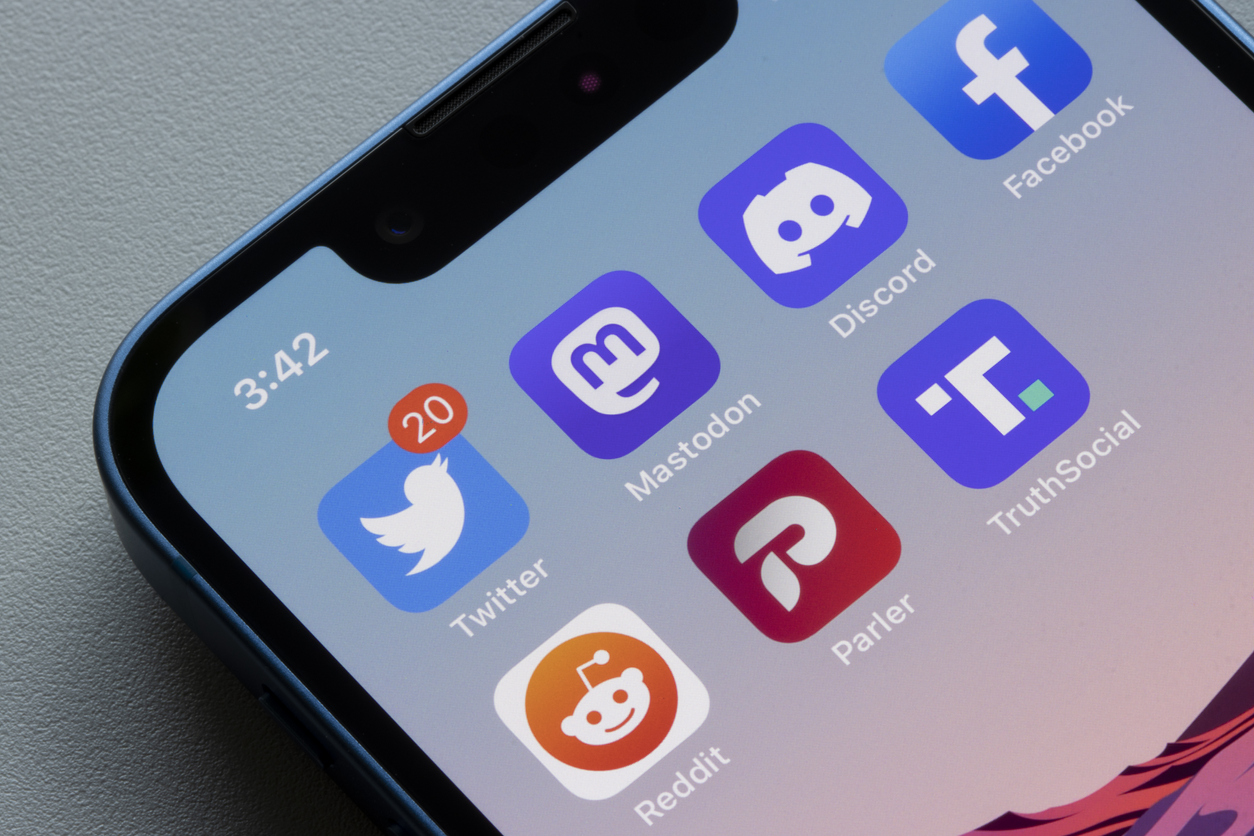From the moment Elon Musk suggested buying Twitter, users began threatening to leave – and the Tesla kingpin’s erratic behaviour since he took over hasn’t exactly helped his case, with thousands of workers laid off and hundreds more resigning. The MIT Technology Review estimates that more than a million Twitter users have jumped ship since Musk took the reins.
Today the social network is launching a revamped version of Twitter Blue, its paid-for verification system, after a previous attempt last month was marred by a flood of imposters and fake accounts. So for those who decide not to stick around to see how this one turns out, what alternatives are out there – and are any of them any good?
Mastodon
If any platform was going to benefit from an Elon exodus, it was likely to be Mastodon, the open-source social network once touted rather triumphantly as ‘Twitter without the Nazis’.
Founded by an idealistic software engineer, Mastodon is fully decentralised. Which means that instead of all piling into the proverbial town square, users set up and monitor their own communities (known as ‘instances’) based on shared interests.
So far, Mastodon does appear to be winning the largest share of Twitter defectors – at least among those all-important ‘blue ticks’. Inevitably this influx of establishment media types has given the platform a slightly sanctimonious feel – so be warned.
In last year’s terms, think of Mastodon as the equivalent of a KN95 face mask. It’s overly fiddly with a deliberate air of superiority but carries a lot of clout in certain circles.
Truth Social
Founded by Donald Trump after his exile from big tech, Truth is as different from Mastodon as you can get: a shameless Twitter rip-off intent on fanning flames of the culture war.
Pre-Musk, Truth had a simple offer: it was the only social media platform where you could find Donald Trump. Post-takeover, it’s very much the same, given that Trump still hasn’t used his newly restored Twitter account. So either the Donald is sticking with Truth or he has forgotten his Twitter password.
At the risk of stating the obvious, Truth is hyper-partisan – although you will find left-wing California governor Gavin Newsom among the echo chamber. Aside from that it’s largely Maga luminaries posting carbon copies of their tweets.
Truth has one other unique feature in that it’s the only Twitter competitor on the New York Stock Exchange. In fact, its current market cap of $800 million implies a valuation of more than $150 per user. At more than 100 times the comparative ratio for Facebook, it suggests someone is feeling optimistic.
Parler
Before Truth, there was Parler – another Twitter clone whose vocal support for free speech made it a temporary haven for such voices as Gavin McInnes, Laura Loomer and Milo Yiannopoulos.
Like many alt-right ventures, Parler proved to be more successful as a leftist bogeyman than a genuine business. Even at its high point, the site was estimated to have fewer than five million active users – but that didn’t stop Apple removing it from its app store in the wake of the 6 January attack on the US Capitol for fears it might spark a civil war.
Having fallen off the radar, Parler received a new lease of life this autumn when it was bought by Kanye ‘Ye’ West for an undisclosed sum. But if the new management has plans to revive this clunky and spam-filled app, I haven’t seen sign of it yet.
Still, at least buying this moribund app won’t prove to be Ye’s worst decision this year.
Tribel
Like Parler, Tribel is another platform whose reputation has occasionally got ahead of itself – like when its founder managed to get Musk to call it ‘awesome’. Musk may have quickly deleted his tweet, but it didn’t stop certain sources encouraging rumours that Tribel would be his next purchase.
Perhaps these kind of publicity stunts were expected given Tribel was founded by Omar Rivero – a controversial and extremely online activist known for monetising rage clicks in anti-Trump quarters.
Rivero says he wants Tribel to be the antidote to Twitter’s toxicity. Yet unlike Mastodon (which has at least made a genuine attempt to encourage conversation rather than political pugilism), Tribel apportions the blame wholly to one side – with a broad ban on anything fitting his definition of bigotry.
Unfortunately the end result is exactly what you’d expect: a one-dimensional tide of semi-anonymous accounts posting sarcastic memes dunking on Republicans. In other words it’s a mirror image of Truth Social.
Hive
As a break from the shrill partnership of Truth and Tribel, Hive works just fine. It’s a pleasingly smooth app with a snazzy interface that lets you post what you might otherwise share on Twitter or Instagram.
As a Twitter rival, though, it’s hard to see what else it has to offer. Of course that might not be such an issue if Twitter really does collapse (as some have been feverishly predicting), but until then it’s hard to see it taking off.
CounterSocial
On the face of it, CounterSocial looks like a near-clone of Tweetdeck: a multi-column interface that lets users monitor several thematic lists of posts at once. As with Hive, though, traffic isn’t exactly a Tokyo intersection – meaning that newcomers like me end up seeing well-intentioned random users and animal posts.
That said, interviews with the platform’s founder (a semi-anonymous activist hacker who previously targeted the homophobic Westboro Baptist Church) suggest more ambitious plans: including a Zuckerberg-esque venture into the metaverse with virtual reality worlds.
Post
‘Post will be a civil place to debate ideas; learn from experts, journalists, individual creators, and each other; converse freely; and have some fun,’ promises the marketing blurb for this ambitious side-project from Waze founder Noam Bardin.
Right now, we’ll have to take his word for it – as the Post website is little more than an invitation to join the waiting list. Given that the form asks for would-be ‘Posters’ to offer their LinkedIn and Facebook, we can assume there may be some exclusivity involved. So far, so Clubhouse.







Comments